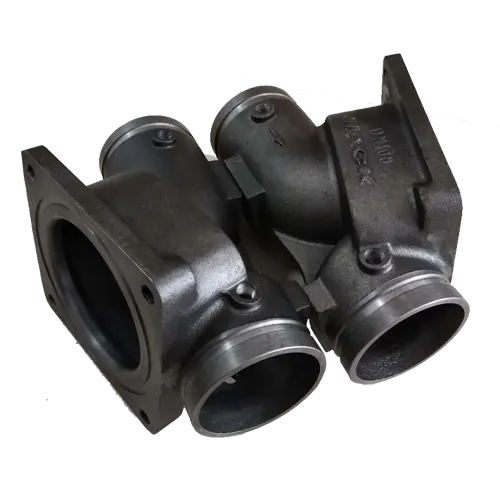Mobile:+86-311-808-126-83
Email:info@ydcastings.com
A Comprehensive Guide to Automotive Engine Cooling System and Water Pump Functionality
The Importance of the Auto Engine Water Pump
The engine of a vehicle is often regarded as its heart, tirelessly working to translate fuel into motion. However, like any complex system, it has several supporting components that ensure it operates smoothly and efficiently. One such vital component is the water pump, which plays a crucial role in maintaining the engine's optimal temperature.
The primary function of the auto engine water pump is to circulate coolant throughout the engine and the radiator. This circulation is essential for removing excess heat generated during combustion and ensuring that the engine operates within its designed temperature range. If the engine overheats, it can lead to severe damage, including warped cylinder heads, blown head gaskets, or even complete engine failure. Therefore, the water pump is not just a minor component; it is integral to the engine's longevity and reliability.
The water pump operates based on a simple yet effective mechanism. It typically consists of a durable housing and an impeller driven by a belt connected to the engine's crankshaft. As the impeller spins, it creates a centrifugal force that draws coolant from the radiator and pushes it through the engine. After passing through the engine, where it absorbs heat, the coolant then returns to the radiator, where it is cooled before circulating back through the system.
Modern vehicles often use two types of water pumps mechanical and electric. Mechanical water pumps are driven directly by the engine’s crankshaft, while electric water pumps operate independently and can be controlled by the vehicle's computer systems. Electric pumps offer several advantages, including improved efficiency and the ability to operate when the engine is off, which helps manage heat in hybrid and electric vehicles.
auto engine water pump

Despite its durability, the water pump is not immune to wear and tear. Common issues include leaks, which can indicate a failing seal or a cracked housing, and a worn impeller that fails to circulate coolant effectively. Signs of a failing water pump may include engine overheating, coolant leaks underneath the vehicle, and unusual noises like grinding or whirring sounds. Early detection of these signs is essential, as ignoring them can lead to more severe engine problems and costly repairs.
Regular maintenance plays a crucial role in extending the life of the water pump. A vehicle's cooling system should be routinely inspected, and the coolant should be flushed and replaced according to the manufacturer's recommendations. This preventative maintenance not only helps to keep the water pump functioning optimally but also promotes the overall health of the engine.
In recent years, technology has played a significant role in enhancing the performance of water pumps. Innovations, such as variable speed water pumps and more advanced materials, have improved efficiency and reliability. These advancements also help to reduce emissions and fuel consumption, contributing to a greener automotive industry.
In conclusion, the auto engine water pump is a small yet mighty component that plays a pivotal role in a vehicle's performance and longevity. Understanding its significance and maintaining its function is essential for any car owner. As automotive technology continues to evolve, the water pump remains a crucial element in the quest for more efficient and reliable vehicles. By giving attention to this often-overlooked component, drivers can ensure that their engines continue to run smoothly for miles to come.
-
What Makes Stainless Steel Pump Casting Essential for Modern Industries?NewsJul.14,2025
-
Revolutionize Your Engine Maintenance with Premium Aluminum and Cast Iron ComponentsNewsJul.14,2025
-
Precision Flow Engineering Starts with the Right Pump ComponentsNewsJul.14,2025
-
Maximize Efficiency: Explore Reliable Containment and Crop SolutionsNewsJul.14,2025
-
Discover Superior Performance with Advanced Turbo ComponentsNewsJul.14,2025
-
Boost Fluid Dynamics with Precision-Engineered Pump ComponentsNewsJul.14,2025











